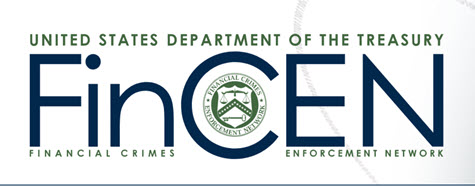
A federal judge on May 5 ruled that the U.S. Centers for Disease Control and Prevention (CDC) exceeded its authority by issuing its national eviction moratorium, which is scheduled to expire June 30. (New York Times, May 6)
National Impact
- The federal eviction moratorium – originally enacted by Congress more than a year ago in the CARES Act – was extended by both the Trump and Biden Administrations by executive orders to prevent mass evictions in the face of a public health emergency. (BGov, May 5)
- The 20-page ruling by Judge Dabney Friedrich of the U.S. District Court for the District of Columbia vacates the moratorium on a nationwide basis, yet does not affect similar eviction moratoriums enacted at the state or local levels. (Wall Street Journal, May 5)
- The order states, “It is the role of the political branches, and not the courts, to assess the merits of policy measures designed to combat the spread of disease, even during a global pandemic. The question for the Court is a narrow one: Does the Public Health Service Act grant the CDC the legal authority to impose a nationwide eviction moratorium? It does not.” (Washington Post, May 5)
- The Georgia and Alabama state Realtor associations, along with two housing providers and their property management companies, filed the lawsuit against the U.S. Department of Health and Human Services. (Realtor Magazine, April 29)
Justice Department Appeal

- Brian M. Boynton, Acting Assistant Attorney General for the Justice Department’s Civil Division, stated on May 5 that the department would file an appeal of the decision and an emergency stay of the order.
- Boynton stated, “The Department of Justice respectfully disagrees with today’s decision of the district court in Alabama Association of Realtors v. HHS concluding that the moratorium exceeds CDC’s statutory authority to protect public health. In the department’s view, that decision conflicts with the text of the statute, Congress’s ratification of the moratorium, and the rulings of other courts.”
- Judge Friedrich also issued an order late on May 5 that would temporarily allow the moratorium to continue while she considers the Biden administration’s emergency request. The temporary stay is in place “to give the court time to consider the merits” of arguments from both sides. (BGov, May 6)
Rental Assistance Distribution

- The National Multifamily Housing Council (NMHC) responded to the ruling: “What has become clear over the course of the pandemic and resulting financial distress is that the best way to keep people in their homes is to provide them the resources necessary to meet their housing obligations and other costs. To that end, lawmakers in Congress fulfilled their responsibilities and passed almost $50 billion in rental assistance, as well as other supports like stimulus checks and extended unemployment benefits.”
- Congress has enacted billions in aid to help renters, but state and local authorities are overwhelmed with how to allocate the influx of funds, leaving many tenants and housing providers waiting weeks or months for the assistance. (Washington Post, April 8 and Wall Street Journal, April 13)
- The Roundtable is part of a broad real estate coalition that recently urged state, county and municipal officials to distribute the allocated federal funds as soon as possible. (Coalition letter, April 15)
- The coalition letter emphasized the need “to quickly and fully allocate available American Rescue Plan federal funds to provide assistance to renters, consumer-facing small businesses, and impacted industries such as retail, tourism, travel, and hospitality that are having trouble paying rents, mortgages or remaining viable enterprises due to the COVID-19 pandemic.”
- The letter adds, “Such assistance would make a big difference in the lives of thousands upon thousands of COVID-19 affected renters and businesses in their cities, counties, and states – and would also provide stability to the buildings and communities in which they live.”
Additional guidance from the Treasury Department on disbursement of federal rental assistance funds is expected this month.
# # #















